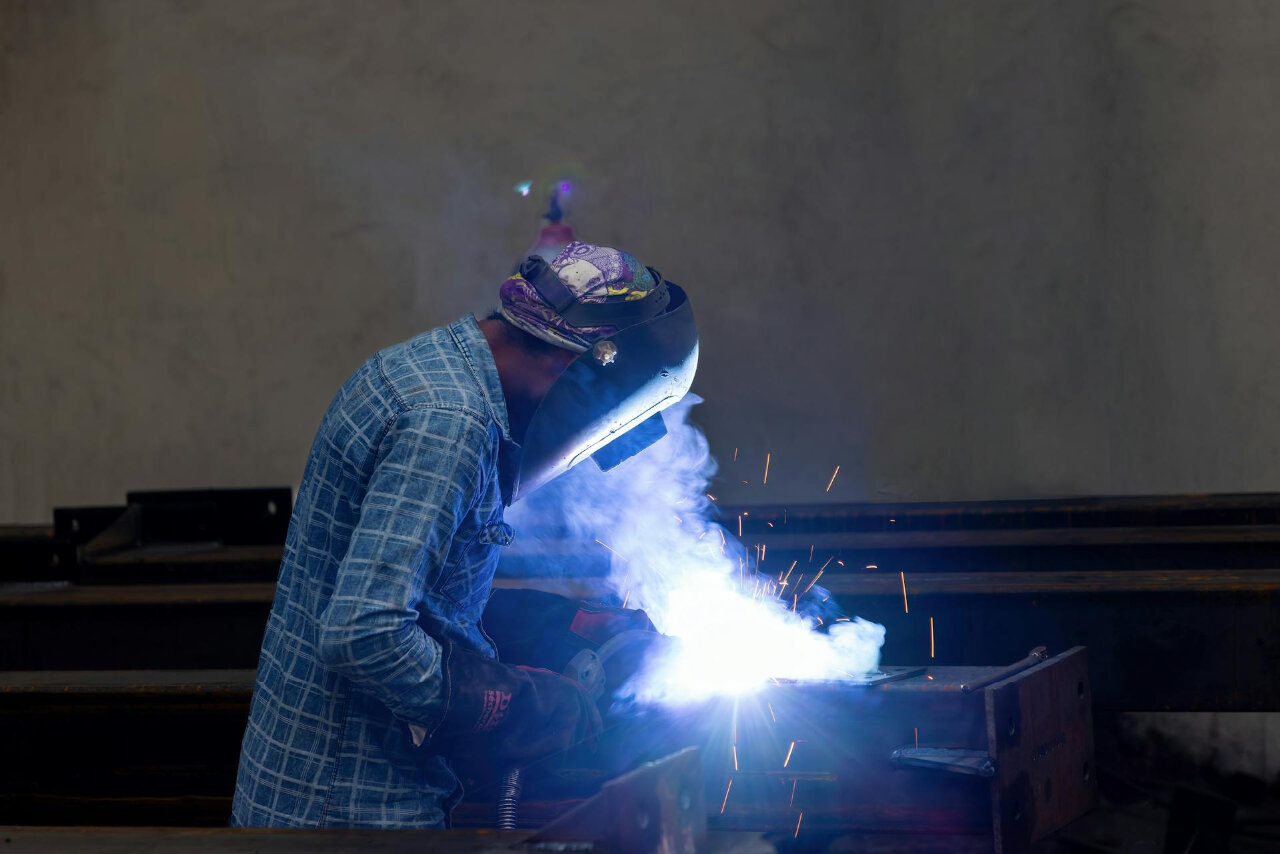January 17, 2025
Stud welding is a highly efficient and versatile welding technique that has transformed the way metal studs and fasteners are attached to various surfaces. It is recognized for its reliability and precision, making stud welding an essential method for fabricating robust structures and components.
Join us as we explore the fundamentals of stud welding, its numerous applications, and the advantages it offers. By the end, readers will understand why this process remains a preferred choice for welders across various sectors.
Stud welding refers to a specialized welding process that attaches metal studs and fasteners to a metal surface. The benefit of stud welding is that it eliminates the need to pre-drill holes in order to attach studs and fasteners. It is best known for its superior speed and efficiency, creating clean and durable welds with minimal heat distortion. To execute a stud weld, welders create a high-temperature arc between the metal stud and the workpiece. Both the workpiece and metal stud melt and become bonded together once they solidify.
Many welders utilize stud welds for a diverse range of workpieces. The technique works for any project requiring clean metal-to-metal connections. Stud welding is most commonly seen in the construction, automotive, and oil and gas industries. In construction, studs are attached to steel beams and metal decks to support building frameworks. The precision and reliability of these components are crucial, as one faulty stud can compromise the integrity of a structure. In the automotive industry, stud welding fastens parts like nuts, bolts, and electrical components to car frames. These are just a few examples of where stud welding is frequently utilized.
Our technicians at BSG are trained and certified to complete stud welds and have performed high-quality stud welding throughout our 35+ years of operation. Our staff is trained in using this complete one-step fastening system, which employs a wide variety of fasteners called weld studs. With this technique, a fastener can be joined to a metal workpiece instantly, creating high-quality permanent bonds.
The advantage of this one-step stud welding process is that it is less expensive than other fastening methods. Additionally, the method is effective even in locations that do not allow the use of other fasteners. These weld studs can be installed by one person working on one side of the workpiece.
Consider choosing Ball Service Group for your next stud welding project. With our team's one-step stud welding proficiency, we can complete stud welds with superior speed and accuracy. If you need a quick turnaround time, our stud welding technique ensures that high-strength metal bonds are formed within seconds. The speed this technique offers is unparalleled; alternative techniques and welding processes simply do not measure up.
Having worked in the manufacturing industry since 1987, we have accumulated years of customer service experience. With our meticulous quality inspection practices, we ensure our clients walk away with a high-quality product that meets their needs every time. Complex projects are simplified with BSG, as we provide end-to-end support from prototyping to fabrication to quality inspection and delivery.
Browse our wide range of capabilities.

Yes, aluminum can be used in stud welding. However, only certain aluminum alloys are compatible with stud welding. Stud welding aluminum is quite different from stud welding steel, as aluminum introduces new challenges that require more intensive heat control and surface preparation.
Welding galvanized steel studs is not a service we offer at BSG. Generally speaking, it is possible to weld galvanized steel studs, but you must first remove the zinc coating before doing so. The zinc coating, when burned or melted, releases toxic fumes that make it dangerous to work with.
During the stud welding process, paint, dirt, debris, and rust can contaminate the weld. If the weld is contaminated, its structural integrity is compromised. Therefore, welders performing a stud weld must ensure the surface is completely clean. Another potential disadvantage is its material limitations, as stud welds can only be executed on metals with good conductivity and weldability. Moreover, stud welds are defective if not properly aligned with the workpiece.